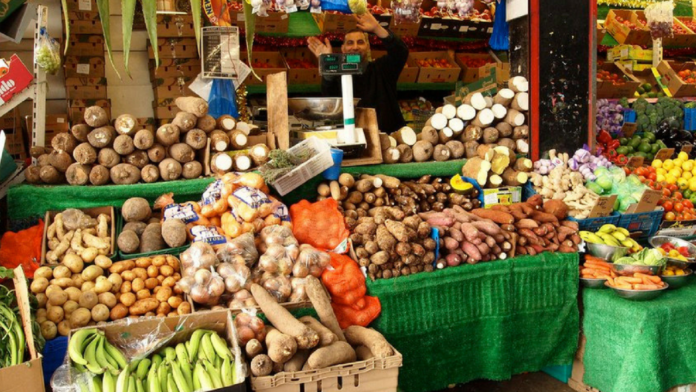Some government workers have lamented the ineffectiveness of the new minimum wage in the face of rising food inflation in the country.
The most recent minimum wage increase was signed into law by President Bola Tinubu on July 29, 2024.
The new minimum wage is ₦70,000 per month.
A medical professional at a government hospital, Dr Dorka Ikechukwu, said inflation has ripped off the benefits the new minimum wage was intended for.
“Despite the recent implementation of the minimum wage by the Federal Government, most civil servants are still bearing under the brunt of inflation.
“The cost of food items are still very expensive. Even with the minimum wage, you cannot even still have what you want, because everything is still expensive.
“Also, coupled with the rising cost of transportation, the minimum wage does not cover enough. The commercial drivers and taxis still increase their price despite the drop fuel price.
“The transportation costs also affects the price of food items in the market.
“So, even the new minimum wage of a thing is not even effective because the money is not still enough.
“The government should do something about the inflation rate because it just swallows the whole income at the end of the day,” Ikechukwu said.
On his part, Mr Frank Egwim, a financial analyst, called for a revival of the economy for the effects of the minimum wage to be felt by the average Nigerian worker.
“The new minimum wage has really not been effective for workers because the inflation has actually taken deep in the minimum wage. It is as good as nothing.
“The inflation is crippling the purchasing power of the common worker making the new minimum wage ineffective.
“For example, if you take a critical look at it, the minimum wage stands at an average of N70,000 but a bag of rice goes for between N91,000 and N95,000 as against when it was sold at N30,000 or N40,000 before the minimum wage.
“We know that the elective price level is actually stable before the minimum wage even though we were complaining.
“However, we have observed that even some state governments, have not even effected or implemented the minimum wage.
“So now what will be the impact on workers in states that it has not been implemented? We really hope for a drop in the inflation rates,” Egwim said.
Also speaking, Ms Itoro Ekpenyong, a schoolteacher at a government school, called for a full breakdown of the minimum wage for workers to understand what they are really earning.
“We are grateful for the minimum wage but the expenses still outweigh the income.
“The thing is that we do not even understand how this minimum wage is calculated. The government should pay the full 70 per cent increment promised.
“The cost of food items in the market is changing everyday, we do not know the impact of the minimum wage anymore.
“We are just leaning on God’s grace to survive,” Ekpenyong said.
(NAN)



